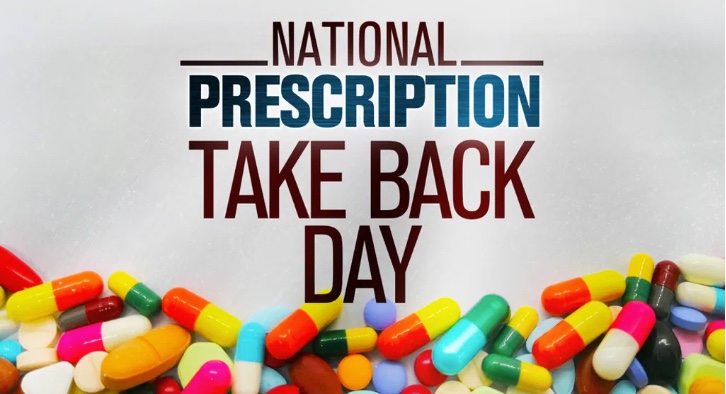Challenges & Answers: Struggles, provocations, demands … and resources
Not feeling “yourself” during pregnancy or after giving birth?

According to the good folks at PSI (Postpartum Support International), parents of every culture, age, income level and race can become depressed, anxious, or obsessive-compulsive during pregnancy and the first 12 months after childbirth.
Your feelings can range from sadness and lack of interest to thoughts of hopelessness and physical danger. Some women have panic attacks, complete with chest pain, dizziness, numbness, and a feeling of losing control. Others can have repetitive, upsetting, and unwanted thoughts and/or mental images.
You or your loved one are not alone! PSI offers clear definitions, lists of symptoms, and – most important – helplines, advice, books, providers, and peer mentors.
Your local obstetrician (OB) or midwife can also check with the Rhode Island Maternal Psychiatry Resource Network (RI MomsPRN), a consultation service for health care providers who treat pregnant and postpartum women. RI MomsPRN is a collaborative project between the Rhode Island Department of Health (RIDOH) and Women & Infants Center for Women’s Behavioral Health.
Your OB can seek treatment guidance from perinatal psychiatric specialists for you and obtain direction about supports and services in your
area.
Providers: call (401) 430-2800 or email RIMomsPRN@CareNE.org to connect with perinatal psychiatric specialists in real-time.
- Are you having problems with eating or sleeping?
- Are you having upsetting thoughts that you can’t get out of your mind?
- Do you feel as if you are “out of control” or “going crazy”?
- Do you feel like you never should have become a parent?
- Are you worried that you might hurt your baby or yourself?
Why your kid lies…and what a parent can do about it.

Sometimes it’s as simple as remembering when YOU were a kid. You told lies, fibs, whoppers – call them what you will – for a variety of reasons. In her fascinating article for Child Mind Institute, Beth Arky names a few:
- To see what will happen, plain and simple
- To gain approval, from peers to adults
- To direct the focus off themselves
- Because they speak before they think
- Because you tell them to, e.g. “tell your grandmother how much you loved the sweater she gave you”!
Arky refers to Matthew Rouse, PhD, a clinical psychologist at the Child Mind Institute. He says, “When it comes to attention-seeking lying, generally speaking, it’s best to ignore it. Rather than saying harshly, ‘That’s a lie. I know that didn’t happen to you,’ I suggest a gentle approach where parents don’t necessarily have a consequence but they’re also not trying to feed it a lot of attention.
“This is especially true if the lying is coming from place of low self-esteem.”
But Dr. Rouse doesn’t hesitate to encourage consequences appropriate to the youth’s age and the significance of the untruth.
“If he’s hit another child and lied about it, there’s a consequence for the lying and also for hitting,” he concludes.
Arky’s article includes suggestions based on a 1-3 rating system for the lies, and includes benefits for telling the truth, “truth checks”, and time to think before they answer. She also lists what parents shouldn’t do, i.e. putting your child on the spot or labeling him or her a liar.
Sarah Gonser’s piece in Parents.com (from where the photograph comes) offers a “Parent’s Guide to Lying” according to age groups ranging from toddlers to tweens.
Yes, kids lie—and so do adults.
The good news: If parents take a strong lead on a no-lying policy, most children will learn to walk the straight and narrow
When kids ask (really) tough questions. NPR offers a quick guide.

Kids can stop you in your tracks with unexpectedly tough questions, warns NPR (National Public Radio).
Such as:
I know she died, but when is Grandma coming back?
Why is your skin darker than Mommy’s?
Why do we live here but Daddy doesn’t?
There are good (to them) answers and, well, lots that leave them unsatisfied.
NPR has committed itself to a series of parenting guides for NPR’s Life Kit, “a family of podcasts dedicated to making your life just a little bit easier.”
In the meantime, though, here’s a quick primer on answering tough questions rom kids.
- When you get a tough question, listen for what the child is really asking.
Don’t rush to answer. Pause and ask for clarification. It buys you time to choose your words carefully. It also stops you from answering the wrong question.
- Give them facts, but at a pace they can manage.
Whether you’re breaking news about the death of a loved one or a serious illness, it’s important to understand that children process information a bit at a time. That means you should be prepared to revisit the topic, perhaps many times.
- “That’s a great question. Let’s find out more together.”
This is a good response to have up your sleeve for complex issues: science, history, race, gender, politics, scary incidents in the news or any time a question catches you off guard.
“We can say, ‘Let’s explore this together, because that question is really a big one,’ ” says Jeanette Betancourt, senior vice president for U.S. social impact at Sesame Workshop. ” ‘Let’s go to the library and let’s look at some books. Let’s search for maybe some films or movies or get recommendations from our teachers or librarians.’ Because not everything has to be in the moment.”
- Reassure them that they are safe and loved.
Often when kids grapple with a scary or uncertain subject, their questions will have one fundamental motivation: What’s going to happen to me? Will I be safe? Will I be taken care of? Those are the questions you need to answer, even if they aren’t being asked explicitly.
- Don’t be afraid to share your emotions.
Grown-ups don’t have to “wall ourselves off in our grief” or other feelings, says Rosemarie Truglio, a developmental psychologist and Sesame Workshop’s senior vice president of education and research.
Her mother died several years ago, and she says she still experiences moments of grief. Recently, she says, she cried in front of her son and didn’t hesitate to explain, “I’m sad because I miss Grandma.”
You may be about to give them too much information that they don’t want and they’re not ready for. Pause before you respond.
The next National Prescription Drug Take Back Day is October 28, 10am to 2pm

But you don’t have to wait
Don’t toss, flush, or keep your unused or expired meds! The first two aren’t good for the environment and keeping them around is a bad idea for idle hands.
The U.S. Drug Enforcement Agency (DEA) conducts National Prescription Drug Take Back Days twice annually. The first is in April and this Fall’s will be October 28 from 10am-2pm. Various sites, mostly pharmacies and police stations, set up containers to take your vials, boxes, jars, and bottles.
The good news is that you aren’t limited to two days a year. There are locations in Washington County, the rest of Rhode Island, and all across the United States that will accept meds year-round.
Here are the police stations in South County:
Charlestown Police Department
4901 Old Post Road • (401) 364-1212
Hopkinton Police Department
406 Woodville Road • (401) 377-7750
Narragansett Police Department
40 Caswell Street • (401) 789-1091
No liquids or needles are accepted
Narragansett Indian Tribal Police
4375-B South County Trail, Charlestown • (401) 364-1100
North Kingstown Police Department
8166 Post Road • (401) 294-3316
Prescription drugs only. Town residents only.
Richmond Police Department
1168 Main Street • (401) 539-8289
South Kingstown Police Department
1790 Kingstown Road, Wakefield • (401) 783-3321
Westerly Police Department
60 Airport Road • (401) 596-2022
For a PDF list of all the sites in Rhode Island, visit the Department of Behavioral Healthcare, Development Disabilities & Hospitals website.
For a national search database, visit the DEA website.
Children grieve differently than adults. If we’re going to help them, we have to follow their rules.
Covid brought the reality of death sooner than expected to lots of families. Elderly parents and, in the case of young children, beloved grandparents were taken suddenly and without warning.
You, as an adult, have one set of coping mechanisms. Your child has another. If you are to help them through this inexplicable loss, you have to understand them.
Who better to turn to than the folks at Sesame Workshop, one of the offshoots of Sesame Street. Its Grief page [https://sesameworkshop.org/topics/grief/] is filled with reassuring videos of familiar muppet faces as well as age-appropriate discussions, activities, and resources.
“Our results speak for themselves: dramatic reductions in student and teacher stress; bullying; and behavior-related visits to the principal’s office.” The year-long curriculum is designed to help students and their teachers build self-awareness, executive functioning skills, balance, focus, and empathy from the inside out. “Each student has a way to return to center – a safe, happy, and confident place from which they can reset and start again.”
Inspiring Minds hopes to “develop a community of resilient kids who are learning how to pay attention, noticing what’s happening in their bodies, and skillfully responding (rather than reacting) to various stimuli throughout their day.”
Washington County Coalition for Children
functioning under the fiscal sponsorship of
Wood River Health
823 Main Street
Hope Valley, RI 02832
wccc@washcokids.org


